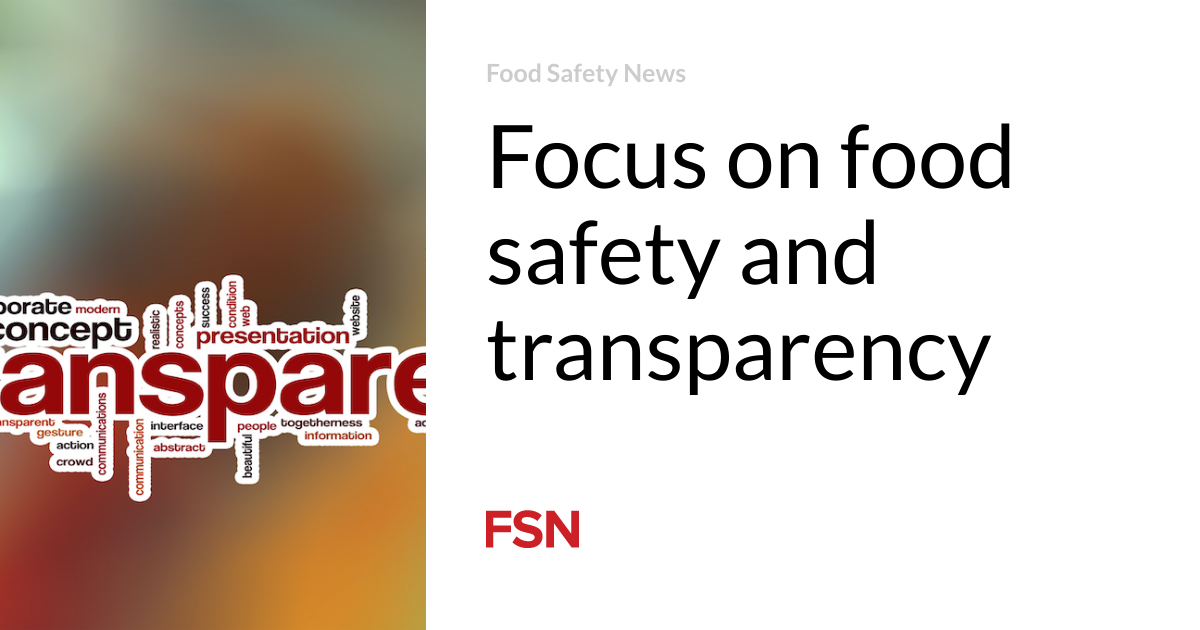The food industry experienced a remarkable evolution in 2023, fueled by the widespread adoption of technological solutions, including AI, IoT, blockchain, and machine learning. These innovations are poised to continue reshaping the food sector in 2024, with a strong emphasis on enhancing food safety, transparency, and the overall customer experience.
Prioritizing food safety
2024 is set to witness a sustained commitment to food safety and quality within the food industry. Many food brands have recognized the value of leveraging technology to uphold the highest standards of food safety throughout the supply chain. As the year unfolds, these innovative tech solutions will continue to play a pivotal role in ensuring the safety of both food products and consumers.
One significant driver behind this shift is the Food Safety Modernization Act (FSMA), which has prompted organizations to adhere to stringent food safety regulations. Over recent years, brands have become increasingly aware of and compliant with these protocols, working diligently to enhance safety, quality, accuracy, transparency, and overall compliance. The industry’s collaborative efforts to prioritize food safety and establish greater transparency and traceability throughout the food supply chain are commendable.
In the upcoming year, a growing number of food businesses will embrace FSMA regulations. This surge in adoption can be attributed to impending deadlines, rising consumer demand for heightened food safety and quality, technological advancements facilitating transparency and traceability, and a collective dedication to prioritizing food safety. The acceleration of FSMA adoption promises to contribute to a safer, more secure, and transparent food supply chain.
Meeting evolving consumer expectations
Consumer expectations have evolved, demanding greater transparency, ethical sourcing, sustainability, and healthier food offerings. Food brands are actively responding to these new consumer demands by providing comprehensive information about ingredients, sourcing practices, and sustainability efforts. This approach empowers consumers to make more informed choices about the food they purchase and consume.
The modern consumer is increasingly concerned about transparency and sustainability in the food industry, driven by a growing awareness of the environmental and social consequences of their dietary choices. Consumers aspire to make purchases that align with their values, favoring brands that share their commitment to positive change. In this competitive market, food companies must align with these values to remain relevant.
Notably, the new FSMA regulations include rules that standardize food traceability protocols, aligning with consumers’ calls for transparency. A recent survey found that 72% of consumers consider transparency important when choosing which brands to support.
Anticipating trends in 2024
As 2024 unfolds, several key trends are expected to shape the food industry:
Competition and market saturation
The food industry remains highly competitive, especially in saturated markets, intensifying the battle for customers. To stand out in this competitive landscape, brands must differentiate themselves through innovation, safety, quality, unique experiences, and exceptional customer service.
Personalization is a key aspect of this competition. Consumers increasingly seek personalized food recommendations based on their preferences and dietary choices. Tech solutions, such as AI, enable brands to offer tailored recommendations, strengthening customer satisfaction, loyalty, and retention. Brands that leverage technology to enhance the user experience will gain a competitive edge.
Innovative technologies like artificial intelligence, particularly AI-powered chatbots and virtual assistants, enhance efficiency by handling customer inquiries, responding to comments, and facilitating reservations. This not only improves response times but also allows human employees to focus on customer interactions and value-added tasks.
Regulatory compliance
Managing regulatory compliance has historically posed challenges for food organizations due to ever-changing rules and regulations. Tech solutions provide an effective means for handling compliance, including food safety standards, labeling requirements, supply chain transparency, and environmental and labor regulations.
The Food Safety Modernization Act has ushered in significant changes in the food industry. Companies are now obligated to provide full transparency regarding their product manufacturing processes and traceability throughout the supply chain. Compliance demands encompass various aspects, including labeling accuracy, supply chain transparency, and environmental responsibility.
In 2024, food safety regulations and consumer expectations will continue to evolve, requiring brands to stay informed about regulatory changes and leverage tech solutions to ensure ongoing safety, quality, transparency, and compliance.
As technology continues to drive change in the food industry, the focus on food safety, transparency, and meeting consumer expectations remains paramount. Brands that harness technology to enhance these aspects of their operations will not only thrive in the competitive landscape but also contribute to a safer and more responsible food supply chain.




